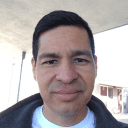When COVID hit, most office employees could stay home and work from home.
But day laborers, the men and women who every day head to labor centers or street corners in search of work, were not so lucky.
They were the construction workers, gardeners, container unloaders and other workers who kept the economy going amid the worst health crisis in modern times.
This labor group, composed in large part by undocumented immigrants, stands to gain from the Medi-Cal expansion in the state that allows those aged 26 to 49 to get the state’s free health coverage for the needy, and activists are urging them to sign up.
“This is not a gift. These people have earned this benefit,” stresses Pablo Alvarado, Executive Director of the National Day Laborer Organizing Network (NDLON).
“This is not a gift. These people have earned this benefit,” stresses Pablo Alvarado.
“This is a community that’s given everything. That for 20, 30 years have been without medical coverage and is one of the best things that could happen in this new year,” Alvarado continued. “It’s a blessing.”
Excluded from most public benefits, the Medi-Cal Expansion is an example of California leading the way in helping those who contribute to the local economy with their work and a “counterweight to the anti-immigrant policies enacted in other states,” Alvarado said.
AN OLDER, AT RISK POPULATION
There are 10 day labor centers in Los Angeles and NDLON estimates there are some 35,000 day laborers in Los Angeles.
The Institute of Popular Education of Southern California (IDEPSCA) runs several of those centers, serving some 2,000 workers, 70 percent of whom were uninsured prior to the earlier expansion of Medi-Cal, said IDEPSCA Executive Director Maegan Ortiz.
With the expansion, she thinks that uninsured figured could drop to 50 percent and lower.
“This is a population that tends to skew a little bit older with chronic, untreated conditions like diabetes, high blood pressure and other health crises, not just physical health, but also mental health,” Ortiz described.
The Institute of Popular Education of Southern California (IDEPSCA) runs several of those centers, serving some 2,000 workers, 70 percent of whom were uninsured prior to the earlier Medi-Cal expansion, said IDEPSCA Executive Director Maegan Ortiz.
“These are workers who often postponed treatment, especially the most housing precariousness, and ended up in the ER, which raises costs even more,” she added. “We were seeing people dying from complications because it was too late.”
And this is a community that by the nature of the work they do are usually at risk for injuries and illness.
PROMOTING REGISTRATION
That’s why Alvarado and Ortiz are encouraging them to register for the Medi-Cal expansion.
“Coverage is great, but when you have a population not used to managed care, there are a lot of barriers to enrollment and getting a primary care doctor,” Ortiz cautioned. “As soon as they get a piece of mail from the state of California, they’re not necessarily going to open it.”
IDEPSCA has several MOUs (Memorandums of Understanding) with a number of community clinics to visit their centers and talk with day laborers and help them with enrollment. This helps because many day laborers may not have a regular, consistent phone number and follow-up may be difficult.
“We help them find a clinic or a hospital nearby where they can get treatment,” Ortiz said.
Now they also plan to spread the word and help them sign up for the Medi-Cal expansion.
Alvarado said they also plan to have an education campaign to help these undocumented workers take advantage of this new program.
“We know the needs people have and how much it costs to go to the doctor,” Alvarado said. “This will help alleviate that and people need to sign up.”
Ortiz echoed that.
“COVID, cancer or diabetes doesn’t ask for your immigration status,” she said. “This is the best thing for the state overall and the state can afford it. If we can afford to give police body cams, they can definitely afford to get insulin to people who need it.”
RESOURCES
Frequently asked questions about Medi-Cal Enrollment
“The healthcare system has ignored the Latino community; we have to change it,” -Rosa Vazquez

